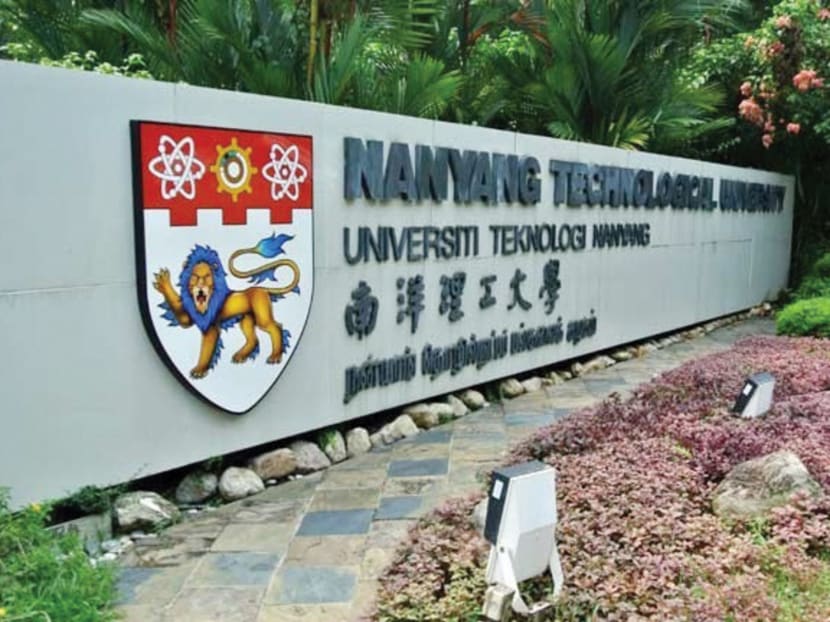NTU to let part-time students finish degrees in four years

The changes at NTU are meant to help part-time students juggling work and studies upgrade more easily, said the university’s senior associate provost. Photo: Channel NewsAsia
SINGAPORE — Amid moves by the Government to drive and support adult learning, Nanyang Technological University (NTU) has revamped its part-time undergraduate degrees, such that new students who start this August can complete their studies in as little as four years, instead of the current five.
However, they will also have to complete their courses within six years, instead of the current eight.
Currently, NTU has close to 1,000 part-time degree students, with about 200 enrolled in each cohort. The university wants to eventually raise this to 500 a year.
The changes, said NTU senior associate provost (undergraduate education) Kam Chan Hin, are meant to enable part-time students juggling work and studies to “upgrade more easily”. Currently, 30 to 40 per cent of first- and second-year part-time undergraduates drop out of courses.
“Some of them come in, don’t know what they’re in for and they find that it’s really tough — they have to do homework, attend lectures and so on. So, typically, the dropout rate for the first two years is high, but after they clear the first and second year ... most of them go all the way,” said Professor Kam. In one instance, a student left after he was promoted and could not cope with the workload.
The university has set up an Office of Professional Education to oversee the coordination of part-time degree programmes, with an eye to reducing the dropout rate.
While the number of course credits required to graduate remains unchanged, part-time students — mainly working adults — will be given greater flexibility in deciding their course load each semester.
Each academic year will be divided into three semesters instead of two — the three-month inter-semester break in May will serve as the third semester during which students can opt to take courses.
Students will also be able to spend less time on campus as most lectures and course materials will be placed online progressively.
The changes, Prof Kam said, means part-time students could halve the time they spend on campus to one or two nights a week.
Explaining why students now have to graduate within six years instead of eight, Prof Kam said: “We want to set expectations. The longer you give them (to graduate), the more there’ll be a tendency to wait. So we want to set something that’s not too far.”
UniSIM, when asked whether it would consider moves similar to NTU, said its part-time students can take up to eight years to graduate. On average, students take three-and-a-half years to six years to graduate. It has been expanding its online learning option, so that students need not rush to attend classes in the evening, a spokesperson said.
The National University of Singapore, which offers a part-time programme at its engineering school, said it constantly reviews the programme. The university added that changes have been introduced in recent years to provide flexibility for working adults. For example, although the recommended duration of the programme is four years, students may proceed at their own pace and even complete the programme in three-and-a-half years if they can cope with a slightly heavier workload.
Part-time undergraduates whom TODAY spoke to had mixed views about the changes.
Engineer Anthony Wong, 31, who is in the final year of his part-time engineering degree at NTU, welcomed the introduction of modules during the inter-semester break. “Because there’s a break of three months, there’s a loss of momentum,” he said.
However, social work associate Alexis Lok, 26, who will be graduating from UniSIM with a part-time degree in social work this year, said some students look forward to the break. “When you start working and studying, it’s really crazy. There’s no space to breathe,” she said.






